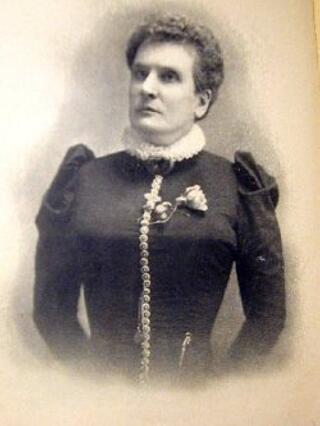From collection Candidates

Marilla Ricker, an attorney, in 1910 announced her intention to run as a candidate for governor of New Hampshire. The state attorney general refused her candidate's petition saying that, lacking the right to vote, Ricker could not run for office. She had intended to make women's suffrage and taxation of church property her platform. After being widowed in 1868, Ricker used her wealth and property to further educate herself, for civic causes, and to become an attorney. As a widow, she divided her time between Washington, D.C. and her home in New Hampshire. In the nation's capital she was associated with Belva Lockwood with whom she challenged women's exclusion from local and federal government employment. In 1877 she applied to the Commissioners of the District of Columbia for appointment as a notary public (rejected because of her sex) but was later (1882) appointed by President Chester A. Arthur. She used the position to help poor prisoners make depositions without the usual fee. For this work as well as her concern for their access to counsel, unequal sentencing practices, and jailhouse conditions, she was known as the "Prisoner's Friend." On May 12, 1882, she was admitted to the Washington, D.C. bar and in 1884 the judges of the District of Columbia Supreme Court appointed her a United States commissioner and an examiner in chancery. She became a member of the US Supreme Court bar in 1891, the same year in which she sought to become US Ambassador to Columbia. She made the application in order "to open the foreign service to women," something that Lockwood had tried in the late 1860s. Ricker had the backing of former New Hampshire Senator Henry W. Blair but President William McKinley refused to take the daring step of appointing a woman. Ricker was also a leader in the women's rights movement in her home state of New Hampshire. She insisted on women's right to vote and became an elector on the Equal Rights Party ticket in New Hampshire, supporting Belva Lockwood's 1884 presidential candidacy. In 1890 she successfully sued the state in a challenge to its exclusion of women attorneys from the New Hampshire bar.




